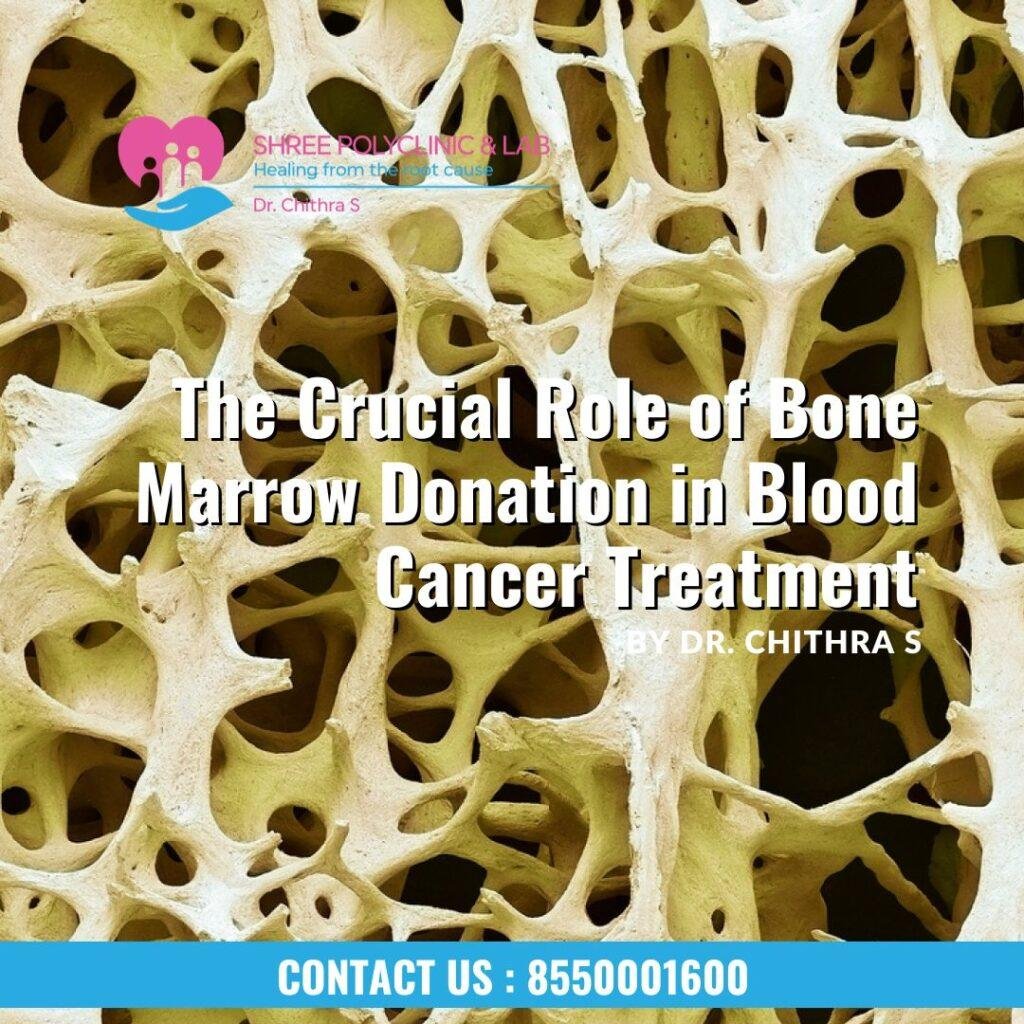Welcome to Day 4 of Blood Cancer Awareness Month! Today, we delve into a life-saving aspect of blood cancer treatment: bone marrow donation. Understanding the significance of bone marrow donation can inspire more individuals to become donors and support those battling blood cancers like leukemia, lymphoma, and myeloma.
What is Bone Marrow?
Bone marrow is a soft, spongy tissue found in the center of certain bones, such as the hip and thigh bones. It plays a vital role in producing blood cells, including red blood cells, white blood cells, and platelets. When someone is diagnosed with a blood cancer, their bone marrow’s ability to produce healthy blood cells is often compromised, necessitating medical interventions like bone marrow transplants.
Why is Bone Marrow Donation Important?
A bone marrow transplant can be a life-saving procedure for individuals with blood cancers. It involves replacing the diseased or damaged bone marrow with healthy marrow from a donor. This procedure helps restore the body’s ability to produce healthy blood cells and can lead to remission or even a cure.
Key Reasons Bone Marrow Donation is Critical:
- Treatment for Blood Cancers: Bone marrow transplants are often the best hope for patients with certain types of leukemia, lymphoma, and myeloma, especially when other treatments have failed.
- Improved Survival Rates: Patients who receive a bone marrow transplant from a matched donor generally have higher survival rates compared to those who do not undergo the procedure.
- Enhanced Quality of Life: Successful transplants can significantly improve a patient’s quality of life by restoring healthy blood cell production and reducing symptoms associated with blood cancers.
Who Can Donate Bone Marrow?
Anyone can be a potential bone marrow donor, but finding a match is crucial for the transplant’s success. The best matches are typically siblings, but unrelated donors can also be a perfect fit.
Eligibility Criteria:
- Age: Most registries accept donors between the ages of 18 and 44.
- Health: Donors must be in good health, free from certain diseases, and have a healthy weight.
- Lifestyle: Some lifestyle factors, such as smoking or excessive alcohol consumption, may affect eligibility.
- Genetic Match: The donor’s human leukocyte antigen (HLA) type must closely match the recipient’s to reduce the risk of complications.
How to Become a Bone Marrow Donor
Becoming a bone marrow donor is a straightforward process:
- Register with a Bone Marrow Registry: Organizations like Be The Match and national bone marrow registries facilitate the matching process between donors and patients.
- Complete a Registration Kit: After registering, you’ll receive a kit to collect a small blood sample or a cheek swab, which is used to determine your HLA type.
- Wait for a Match: Once your HLA type is in the registry, it remains there for potential matches. The waiting period can vary, and some donors may never be called upon, while others may save multiple lives.
- Undergo Donation Procedure: If you are a match, you’ll undergo a donation procedure, which is generally safe and well-tolerated. There are two main types of donations:
- Peripheral Blood Stem Cell (PBSC) Donation: Involves collecting stem cells from the blood after administering medication to increase stem cell production.
- Bone Marrow Donation: Involves extracting marrow directly from the pelvic bones using a needle and local or general anesthesia.
Success Stories: Lives Changed by Bone Marrow Donation
Countless individuals have benefited from bone marrow transplants. Here are a few inspiring stories:
- Emma’s Journey: Diagnosed with acute myeloid leukemia at 12, Emma underwent a bone marrow transplant from her unrelated donor, saved through the registry. Today, she’s a cancer survivor and an advocate for bone marrow donation.
- John’s Second Chance: After battling multiple myeloma, John received a bone marrow transplant from his brother. The procedure extended his life and allowed him to enjoy precious moments with his family.
How You Can Help
Even if you don’t have a family member who needs a transplant, you can still make a significant impact:
- Join a Registry: Registering as a bone marrow donor increases the chances of finding a match for someone in need.
- Spread Awareness: Educate your friends and family about the importance of bone marrow donation. Awareness can lead to more registrations and potential matches.
- Support Organizations: Consider donating to or volunteering with organizations that support bone marrow donation and research.
Conclusion
Bone marrow donation is a beacon of hope for many individuals battling blood cancers. By becoming a donor, you have the power to save lives and offer a second chance to those in desperate need. On this fourth day of Blood Cancer Awareness Month, we encourage you to consider joining the fight against blood cancer through bone marrow donation.
Together, we can make a difference.
Stay Connected with Shree Polyclinic & Lab:
At Shree Polyclinic & Lab, we are dedicated to supporting our community through comprehensive healthcare services and raising awareness about critical health issues like blood cancer. Follow us for more insights, tips, and updates throughout Blood Cancer Awareness Month.
#BloodCancerAwareness #BoneMarrowDonation #SaveLives #ShreePolyclinic #CancerAwareness #DonateLife #HopeForPatients #HealthEducation

